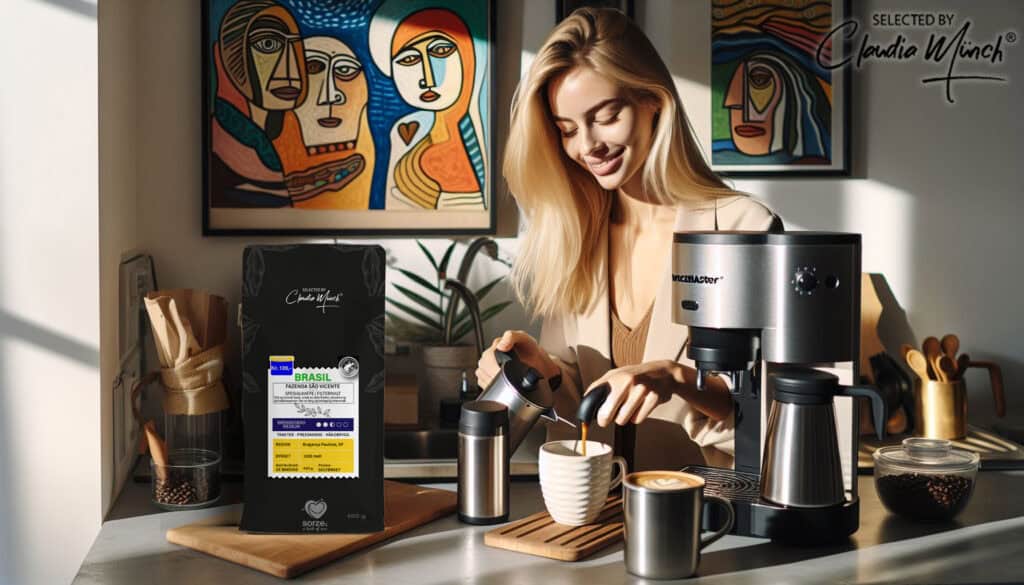
Whole coffee beans are considered to be of better quality than filter coffee for several reasons, but if you are one of those people who can't bear to grind the coffee before you fill it in the coffee maker, or if you don't have a coffee machine, then a ground coffee may be the best choice:
Selection of Beans: Whole beans often come from a more carefully selected source, and many producers pay great attention to the origin and processing of the beans. This may include specialty coffee or single-origin beans known for their unique taste and higher quality.
Freshness and Taste: When coffee beans are ground, they begin to lose flavor quickly due to oxidation. Whole beans retain their essential oils and aromas much longer than ground coffee. By grinding the beans just before brewing, you get a more flavorful and aromatic cup of coffee.
Less Oxidation: Whole beans have a greater integrity in their structure and are less prone to oxidation compared to ground coffee. This means that whole beans can be stored longer without losing quality, while ground coffee oxidizes faster and thus loses its flavor.
Customization of Paint Grade: With whole beans, you have the option of adapting the degree of grinding to the specific brewing method you prefer. This gives better control over the extraction process and can result in a superior coffee experience.
Overall, whole beans provide a more authentic and satisfying coffee experience, and are therefore often preferred by coffee enthusiasts and baristas.
Our filter coffee differs from the one you find in the store, because we use the same beans as those we use when we produce our popular coffee beans. We didn't really intend to sell filter coffee, but when the customers ask, we almost have to do what they want.
We pack with nitrogen
Coffee packed with nitrogen in the bag has a longer shelf life because the nitrogen displaces the oxygen, which is one of the main reasons why the coffee oxidizes and loses its freshness1. When the coffee is packaged in an atmosphere of nitrogen, oxidation is reduced, and the coffee's aroma and taste are preserved for longer. This is particularly important for coffee, as it contains many volatile compounds that are responsible for its unique taste and aroma.
Large coffee roasters may focus more on price than quality, and using nitrogen packing can be part of a cost-effective strategy to extend the shelf life of their products. This enables them to distribute the coffee over longer distances and store it for longer periods without significant loss of quality.
Small coffee roasters, on the other hand, can often focus more on quality and freshness. They may choose not to use nitrogen packaging for various reasons, such as cost or because they prefer to sell their coffee as fresh as possible, often directly to the consumer. In today's economy, where many small roasters are struggling, some may choose to switch to cheaper coffee beans to reduce costs, although this may come at the expense of quality.
There is a balance between cost, quality and durability that each manufacturer must consider based on their business model and customer expectations.
